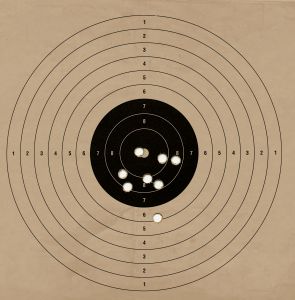 When I started playing Table Tennis, I was surprised by the speed with which I learnt the basics of the game. I became “good enough” in the game in a couple of months, and I regularly began to beat the players who had taught me how to play the game. Just as I had begun to think that I could get really good at this, it became increasingly difficult to become better at the game. Eventually, I reconciled myself to the fact that I will be playing the game only for fun.
When I started playing Table Tennis, I was surprised by the speed with which I learnt the basics of the game. I became “good enough” in the game in a couple of months, and I regularly began to beat the players who had taught me how to play the game. Just as I had begun to think that I could get really good at this, it became increasingly difficult to become better at the game. Eventually, I reconciled myself to the fact that I will be playing the game only for fun.
I am sure something like that must have happened to you too. However hard you practice, you are not able to become perfect. That is to say that not all practice makes perfect.
There are only 24 hours in a day, and there is a limit to the time that you can spend on practicing anything. It is not surprising, therefore, that the famous violinist Nathan Milstein wrote: “Once when I became concerned because others around me practiced all day long, I asked Professor Auer how many hours I should practice, and he said, ‘It really doesn’t matter how long. If you practice with your fingers, no amount is enough. If you practice with your head, two hours is plenty.”
That is the key to becoming good at anything. You have to practice with your head, and that means getting out of your comfort zone.
I could not get any better at Table Tennis, after a point, because I had become comfortable with what I had learnt. Instead of experimenting with new shots, I was using the ones I already knew. I was getting better at the shots I already was good at, but I was not getting better at the game. That is a mistake that is easy to make.
The key to becoming better at anything, therefore, is a two step process:
– Practicing what you already know, and thus becoming better at it
– Learning new things about the thing you want to get better at, and then practicing them. This has to be done deliberately, as our brain will try to avoid stepping into unfamiliar territory.
The second step is vital, because that is what actually leads to improvement. Wouldn’t you agree?
I tried getting better at Ping-Pong too. Turns out that you actually need to have a certain level of dexterity that extends beyond your fingers in order to do so.
Needless to say, I suck at it.
As far as the practice stuff goes, I tend to agree with you on that. It can be difficult to learn and try new things, but in order for you to get better at something as a whole, that’s exactly what you need to do.
totally agreed…very well framed point…we become reluctant after a while to learn new techniques and methods which is a hindrance to the all over progress of getting better and achieving perfection..and yes its all in the mighty brain..we need to really work at that..
kudos to your work and observation..way to go!! 🙂
I totally agree with you on all levels. I’ve tried to learn how to play the guitar several times, but just haven’t gotten better beyond the basic level, for I didn’t push myself. Another reason is because I never played long enough to build up callous on my finger tips. I dread the pain each time I played, so I quit.
Tasha
I’m a pretty good table tennis player myself. And yes, I do agree — practicing with your head is important. CORRECT practice (not just any practice) is important. It takes months or even years to fine-tune your strokes, and you can only do that with a high level of self-awareness of what you’re doing 🙂
Practice does make your skills better, but must practice with our brain. If we just blindly practice, we will never improve. That is why coaching can still make a living. Even Tiger Woods need a coach.
And it is amazing some sports coach are so overweight, that it makes you you really wonder if they know what they are doing… but they produce the results.